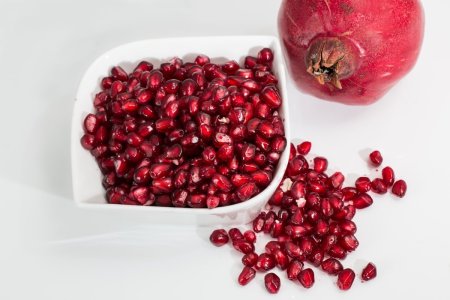Eat these 6 ‘anti-ageing’ foods for healthier skin, a longer lifespan, and an immediate boost to your cognition!
Who says slowing down the ageing process needs to be complicated?
Most experts believe that vegetables, good oils, beans, nuts, foods that have been fermented, and fruit contain the right nutrients to give your body the ‘boost’ it needs.
Putting these ingredients in your meals can help you feel younger because they are packed with nutrients for healthier living.
1 Vegetables
Green veggies, especially those with darker shades, are loaded with vitamins A and C, minerals, fibre, nitrates, and bioactives. They slow down brain aging and shield cells from damage.
Leafy greens contain chlorophyll that fights aging by battling harmful free radicals. The greener they are, the more chlorophyll they have. They also have lutein, which keeps skin hydrated and elastic while safeguarding against sun damage.
Vitamin A in these greens strengthens protective skin tissue, while vitamin C helps give collagen. Examples of these include kale and bok choy.
Watercress, rich in vitamins A and C, fights fine lines and wrinkles by neutralising free radicals.
Broccoli is a vitamin C and K powerhouse that boosts collagen production for strong and elastic skin.
Spinach, packed with vitamins A, C, E, K, and antioxidants, promotes youthful hair and reduces cell inflammation.
Green tea, derived from the tea plant (Camellia sinensis) plant, combats brain aging and shields skin from sun damage.
Sweet potatoes, with their orange hue, contain beta-carotene, an antioxidant that turns into skin-rejuvenating vitamin A. They also offer vitamin C and E protection against free radicals.
Lastly, red capsicums, high in antioxidants and vitamin C, boost collagen production and fight skin damage from the sun, pollution, and the environment.
2 Healthy oils
Plant-based oils are rich in healthy fatty acids, monounsaturated fats, and antioxidants.
Coconut oil prevents age spots, while extra virgin olive oil, in particular, contains squalene that boosts skin hydration.
Olive oil keeps skin hydrated, enhances elasticity to prevent fine lines and wrinkles, and is packed with antioxidants that fight premature aging.
Both olive and avocado oils contribute to reducing the risk of Alzheimer's disease and dementia.
Eating avocados helps remove dead skin cells for a radiant appearance, thanks to their vitamin A content.
Avocados also contain carotenoids that shield your skin from sun damage and toxins, potentially reducing the risk of skin cancer as reported by Healthline.
Skincare enthusiasts can make a moisturising mask using avocados to prevent wrinkles and reduce redness.
3 Legumes
Legumes, like beans, lentils, and chickpeas, are rich in fibre, protein, minerals, complex carbs, and vitamin B, which boost brain function.
Black beans, in particular, are loaded with antioxidants that protect cells from damage.
Legumes, as a group, contain anthocyanins and isoflavones that fight early aging caused by UV rays and inflammation.
Lentils and chickpeas, among others, encourage collagen production for radiant skin.
The saponins and phytosterols found in legumes also contribute to wrinkle prevention.
4 Nuts and seeds
Nuts are a source of proteins, antioxidants, vitamins, minerals, and healthy fats.
Almonds contain vitamin E, guarding your skin from UV rays, supporting tissue repair, maintaining hydration, and preventing wrinkles.
Walnuts boast omega-3 fatty acids, which fortify skin cell membranes and shield against sun damage. They are also rich in polyphenols, providing powerful antioxidants.
Brazil nuts offer both omega-3 fatty acids and selenium, enhancing skin elasticity. Their glutathione content aids skin regeneration and wrinkle prevention.
Nuts, in general, assist in reducing cognitive decline and age-related muscle loss.
Pomegranate seeds, used for centuries in natural medicine, are rich in vitamin C and antioxidants, reducing inflammation and shielding against free radical damage.
Punicalagins in pomegranates help maintain collagen in the skin.
5 Fermented foods
Fermented foods are made by carefully growing certain microorganisms.
These foods possess various health benefits, like reducing the effects of ageing, lowering blood pressure, fighting inflammation, managing diabetes, preventing cancer, and addressing allergies.
Some examples of fermented foods are cultured milk, yogurt, wine, miso, sourdough bread, kimchi, sauerkraut, and kombucha.
Miso soup is rich in antioxidants that prevent signs of ageing.
Kombucha contains AHA, which includes amino acids that keep the skin hydrated. Additionally, its vitamins B, C, and D enhance skin firmness, and the probiotics in it restore skin elasticity.
6 Fruits
Papaya is a superfood rich in antioxidants and vitamins A, C, K, and E.
In addition to its antioxidants fighting against free radicals, papaya contains an enzyme called papain with anti-inflammatory properties that aid in anti-aging.
Consuming papaya also assists your body in shedding dead skin cells.
Blueberries are packed with vitamins A and C and a unique antioxidant called anthocyanin, which shields the skin from damage caused by the sun, stress, and pollution. It regulates the body's inflammatory response, preventing collagen loss.
Furthermore, blueberries help reduce age-related vision and cognitive decline.

Members, have you been enjoying any of these six foods? Do you have a favourite among them? Share your thoughts with us in the comments below!
Most experts believe that vegetables, good oils, beans, nuts, foods that have been fermented, and fruit contain the right nutrients to give your body the ‘boost’ it needs.
Putting these ingredients in your meals can help you feel younger because they are packed with nutrients for healthier living.
1 Vegetables
Green veggies, especially those with darker shades, are loaded with vitamins A and C, minerals, fibre, nitrates, and bioactives. They slow down brain aging and shield cells from damage.
Leafy greens contain chlorophyll that fights aging by battling harmful free radicals. The greener they are, the more chlorophyll they have. They also have lutein, which keeps skin hydrated and elastic while safeguarding against sun damage.
Vitamin A in these greens strengthens protective skin tissue, while vitamin C helps give collagen. Examples of these include kale and bok choy.
Watercress, rich in vitamins A and C, fights fine lines and wrinkles by neutralising free radicals.
Broccoli is a vitamin C and K powerhouse that boosts collagen production for strong and elastic skin.
Spinach, packed with vitamins A, C, E, K, and antioxidants, promotes youthful hair and reduces cell inflammation.
Green tea, derived from the tea plant (Camellia sinensis) plant, combats brain aging and shields skin from sun damage.
Sweet potatoes, with their orange hue, contain beta-carotene, an antioxidant that turns into skin-rejuvenating vitamin A. They also offer vitamin C and E protection against free radicals.
Lastly, red capsicums, high in antioxidants and vitamin C, boost collagen production and fight skin damage from the sun, pollution, and the environment.
2 Healthy oils
Plant-based oils are rich in healthy fatty acids, monounsaturated fats, and antioxidants.
Coconut oil prevents age spots, while extra virgin olive oil, in particular, contains squalene that boosts skin hydration.
Olive oil keeps skin hydrated, enhances elasticity to prevent fine lines and wrinkles, and is packed with antioxidants that fight premature aging.
Both olive and avocado oils contribute to reducing the risk of Alzheimer's disease and dementia.
Eating avocados helps remove dead skin cells for a radiant appearance, thanks to their vitamin A content.
Avocados also contain carotenoids that shield your skin from sun damage and toxins, potentially reducing the risk of skin cancer as reported by Healthline.
Skincare enthusiasts can make a moisturising mask using avocados to prevent wrinkles and reduce redness.
3 Legumes
Legumes, like beans, lentils, and chickpeas, are rich in fibre, protein, minerals, complex carbs, and vitamin B, which boost brain function.
Black beans, in particular, are loaded with antioxidants that protect cells from damage.
Legumes, as a group, contain anthocyanins and isoflavones that fight early aging caused by UV rays and inflammation.
Lentils and chickpeas, among others, encourage collagen production for radiant skin.
The saponins and phytosterols found in legumes also contribute to wrinkle prevention.
4 Nuts and seeds
Nuts are a source of proteins, antioxidants, vitamins, minerals, and healthy fats.
Almonds contain vitamin E, guarding your skin from UV rays, supporting tissue repair, maintaining hydration, and preventing wrinkles.
Walnuts boast omega-3 fatty acids, which fortify skin cell membranes and shield against sun damage. They are also rich in polyphenols, providing powerful antioxidants.
Brazil nuts offer both omega-3 fatty acids and selenium, enhancing skin elasticity. Their glutathione content aids skin regeneration and wrinkle prevention.
Nuts, in general, assist in reducing cognitive decline and age-related muscle loss.
Pomegranate seeds, used for centuries in natural medicine, are rich in vitamin C and antioxidants, reducing inflammation and shielding against free radical damage.
Punicalagins in pomegranates help maintain collagen in the skin.
5 Fermented foods
Fermented foods are made by carefully growing certain microorganisms.
These foods possess various health benefits, like reducing the effects of ageing, lowering blood pressure, fighting inflammation, managing diabetes, preventing cancer, and addressing allergies.
Some examples of fermented foods are cultured milk, yogurt, wine, miso, sourdough bread, kimchi, sauerkraut, and kombucha.
Miso soup is rich in antioxidants that prevent signs of ageing.
Kombucha contains AHA, which includes amino acids that keep the skin hydrated. Additionally, its vitamins B, C, and D enhance skin firmness, and the probiotics in it restore skin elasticity.
6 Fruits
Papaya is a superfood rich in antioxidants and vitamins A, C, K, and E.
In addition to its antioxidants fighting against free radicals, papaya contains an enzyme called papain with anti-inflammatory properties that aid in anti-aging.
Consuming papaya also assists your body in shedding dead skin cells.
Blueberries are packed with vitamins A and C and a unique antioxidant called anthocyanin, which shields the skin from damage caused by the sun, stress, and pollution. It regulates the body's inflammatory response, preventing collagen loss.
Furthermore, blueberries help reduce age-related vision and cognitive decline.
Key Takeaways
- Experts recommend six foods that can slow down the aging process, including green vegetables, healthy oils, legumes, nuts, fermented foods and fruits.
- Specific components like antioxidants, chlorophyll, and omega-3 fatty acids in these foods contribute to improved longevity, cognitive function and a youthful glow.
- Vegetables, especially dark green ones, are packed with vitamins and minerals that prevent cell damage and cognitive decline.
- Healthy oils, specifically plant-based oils like coconut and olive oil, contain fatty acids and antioxidants that boost skin hydration and elasticity.









